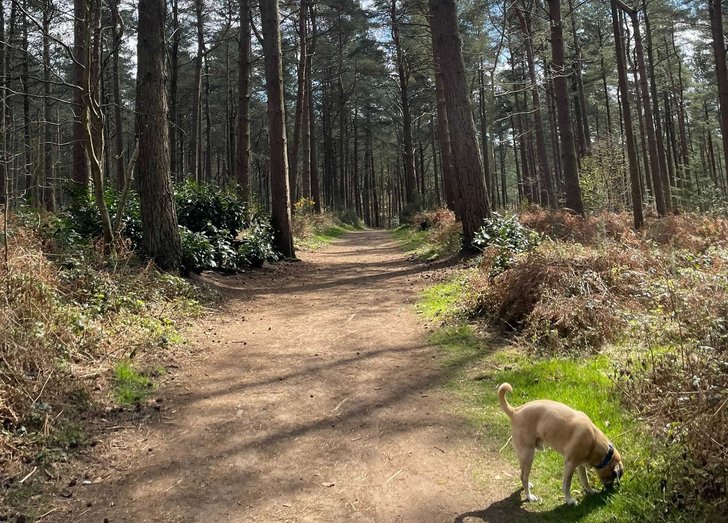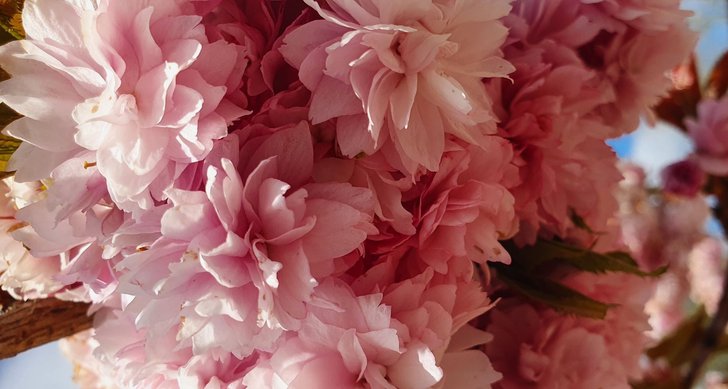From visiting our local parks to tending to plants indoors, spending quality time with nature has been proven to have a positive effect on our mood
It can help to reduce feelings of stress and improve our mental and physical health.
Below we’ve listed some of our favourite ways to connect with nature. We have also included quotes from our volunteers, staff and supporters who shared how nature benefits their mental health.
The simplest of pleasures of hot tea, outdoors, in nature, with friends. It slows the world, resets everything, refocuses the mind and brings one into the moment. Our winner — every single time.
Bunty, Oxfordshire
Bring nature in
If you are spending more time indoors, there are still lots of ways to enjoy nature. Open your curtains or blinds to let the natural light and fresh air in.
A recent study has shown that gardening regularly can help improve mental and physical wellbeing. Arranging flowers or caring for house plants can also help you appreciate nature’s beauty. If you are new to gardening, here are some simple things you could try:
- Regrow vegetables in water. This works well with vegetables like spring onions, lettuce, celery, or leeks. To start, cut off the bottom of the plant and place it in a shallow container with a little water at the bottom. Regularly change the water and watch as the plant grows. You can find more tips for regrowing all kinds of different vegetables in water or from seed here. You can even grow the seed of an avocado into a new houseplant.
Every day I stop to notice the changes in the seasons. Seeing nature at work makes me feel happy.
Andrea, Formby
Be present
The next time you are outdoors or looking out your window, take time to slow down and focus on your surroundings. Take a deep breath, hold it for a moment, then breathe out slowly. Try to focus on the rhythm of your breath and the feeling of the air moving around your body. This video can be used as a guide for your breathing.
Pay careful attention with a relaxation exercise
- Notice five things that you can see. It could be anything from nature. Try to pay attention and pick something you may not have noticed before.
- Notice four things you can touch. Bring your attention to what you can feel. It may be the texture of your clothing or the feeling of the wind.
- Notice three things you hear. This could be the birds or sounds in the distance.
- Notice two things you can smell. If you need to take a brief walk to find a scent you could smell soap in your bathroom, or nature outside.
- Notice one thing you can taste. Take a sip of a drink or notice the taste of the inside of your mouth.
I find that being outside in the natural world and surrounding myself in the sights and sounds of nature is incredibly therapeutic. Just immersing myself in birdsong for a few minutes can quiet my mind and give me some moments of serenity, even in the toughest of times.
Paula, London

Image credit: Michelle, Samaritans volunteer
Spend time outdoors
- Get active. There are lots of different ways to exercise and move your body. You could start off with a brisk walk or join a free online exercise programme. Setting goals with others is a great way to stay motivated.
In my densely populated area of Walthamstow, I go to our fields to walk, to play football with my kids, to be inspired by my community who prioritise their health and wellbeing and for the views.
Nadia, Walthamstow
- Add 10 minutes to your journey. If you are commuting, try getting off a stop early or parking your car a little further from your destination if you can. Walking part of your journey is a great way to spend more time outdoors. If you are walking the whole journey, check the map beforehand to see if there are new routes or green spaces you can take a detour through.
- If you have access to local woods and hedgerows, try your hand at foraging edible plants and herbs. Part of the joy of foraging is not only discovering new flavours but paying close and careful attention to your surroundings. The Woodland Trust have a useful guide to sustainable foraging and what to look out for each month.
- If you are after something new, history walks are a great way to learn more about your local area. Historic England has a list of self-guided virtual heritage walking tours here. The National Trust (UK), Visit Scotland and Visit Wales also has a range of walks and outdoor activities listed on their websites. If you are looking for something more local, try contacting your nearest local history society for suggestions or search for local history walks near me.
Just sitting in my garden and noticing the wildlife about me really helps me, as does taking my dog for a walk. I always try to go somewhere a little more ‘wild’ – a park, a country lane, a local nature reserve – than around the block, as this means I can look out for more wildlife.
Sally-Anne, Derbyshire
For me, it’s going for a really long walk at the weekend. Being in your final year of Uni is quite stressful, I work hard through the week. Reward yourself at the weekend. It clears your head and makes everything better.
Mark, Aberdeen

Image credit: Hannah, Samaritans staff member
Try something creative
Nature can be a wonderful source of inspiration for all kinds of creative activities. You could try drawing the view from your window, making your own bird feeder, or pressing flowers.
For young explorers, the National Trust 50 things to do before you're 11¾ activity list is full of fun, creative outdoor activities.
Nature photography has helped me so much. Leaving the house, exercise, fresh air and a nice task for my mind to focus on = a perfect break from all the stress and uncertainty
Sophia, South East England

Image: Michelle, Samaritans volunteer